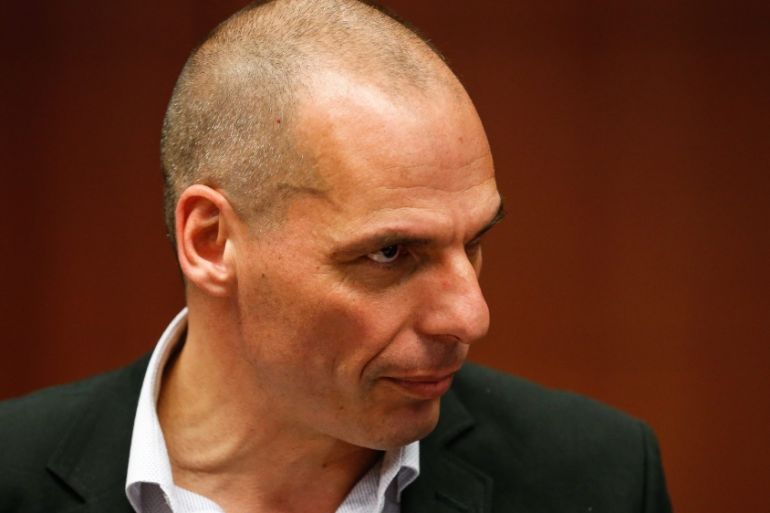Greece says it faces bankruptcy in weeks
No firm agreement yet on critical rescue loans, but euro zone ministers keep tough line on final tranche.

Greece has won limited support from the euro zone for the progress it has made in difficult bailout talks, but warned that it faces a cash crunch within a fortnight without a deal.
Greece’s new government scraped together enough cash to order the repayment to the International Monetary Fund of 750m euros ($840m) and avoid a default which could send it crashing out of the euro.
But euro zone finance ministers meeting in Brussels on Monday kept their tough line, saying Greece could not hope for any of the final 7.2bn-euro ($8bn) tranche of its 240bn-euro EU-IMF bailout until they make key reforms.
“We welcomed the progress that has been achieved so far … At the same time, we acknowledged that more time and effort are needed to bridge the gaps on the remaining open issues,” the Eurogroup statement said after the talks.
Jeroen Dijsselbloem, the euro zone’s top official, said “more time is needed” to reach a deal on the reforms Greece must make in exchange for more loans.
“There are time constraints and liquidity constraints and hopefully we will reach an agreement before time runs out and before money runs out,” he said.
‘Binding’ liquidity issues
Yanis Varoufakis, the Greek finance minister, indicated that Greece may not have more than a couple of weeks before the country’s liquidity issues became “binding”.
Greece ‘s cash crunch could see it go bankrupt within weeks and possibly leave the euro currency.
It has for more than three months been trying to agree on a list of reforms and budget measures to get the bailout loan to help it pay upcoming debts.
While it said it had given the go-ahead to make the IMF loan repayment on Tuesday, it will have trouble meeting other repayments in upcoming weeks.
Varoufakis said “there has been considerable convergence” in the talks over recent weeks and noted progress on issues such as privatisation and tax reform.
However, he said much of the progress was primarily because of concessions made by his government.
He conceded his disappointment that there has yet to be a firm agreement on the rescue loans but that discussions are taking place “in good spirits”.
Varoufakis said his discussions with his German counterpart and tough negotiator, Wolfgang Schaeuble, were the friendliest they’ve had.
Flow of money
In the event of a debt default, Greece could have to put controls on the flow of money through its banks and eventually even drop out of the euro altogether.
Despite three months of talks, Greece and its creditors have failed to agree on the reforms and savings Athens needs to qualify for the loan instalment.
Greece has not had any bailout money since last August and has relied on its own resources.
Whether Greece will default on its debts and leave the euro is one of the biggest uncertainties surrounding the global economy. Most stock markets in Europe were trading lower on Monday, with Greece’ main index down 2.5 percent.
Greece’s left-led government was elected in January on a mandate to end crippling austerity policies, blaming them for the state of the economy.
The budget cuts required in return for 240bn euros worth of rescue loans contributed to a massive shrinkage in the Greek economy and the skyrocketing of unemployment and poverty.